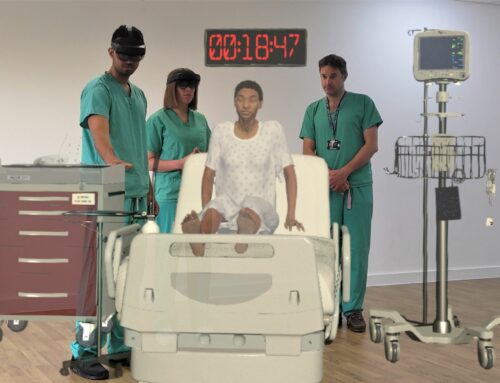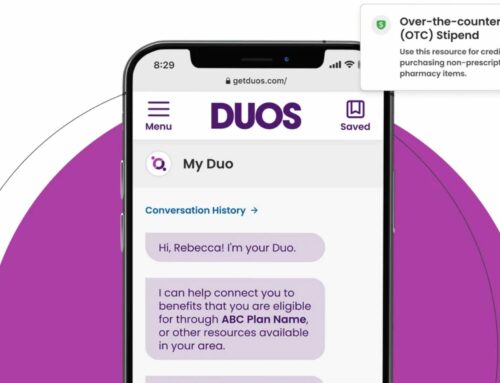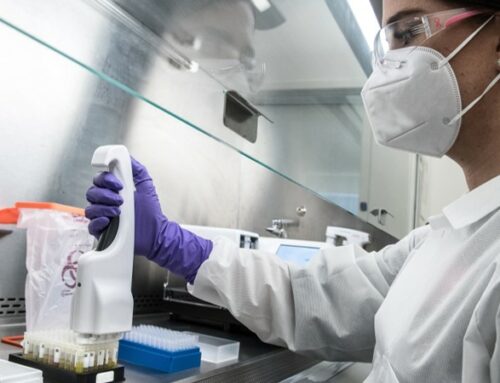By Rotem Shor, Chief Technology Officer at Medisafe |
Smartphones have become ubiquitous , with 2.5 billion people owning them globally according to a report from Pew Research Center1. With their advanced functionality, growing number of apps and functions, and numerous accessories, use of smartphones is outpacing other digital tools, including wearables. Given this widespread adoption, isn’t it time to rethink the smartphone as a wearable?
Consider this: On average, wearables only last three months before users become tired of its limited use, necessary updates, synching to other systems, or limited battery range. By contrast, a smartphone is nearly ubiquitous in large part because it’s one device that is capable of doing far more than a wearable. Phones are now capable of capturing, tracking, monitoring and measuring many of the same health data that were initially restricted to wearable devices. Below are a few considerations propelling the smartphone to rapidly replace wearable devices:
Smartphone capabilities in multiple sizes
Smartphones come in a variety of sizes, making them easy for anyone to use as wearable technology. Apple’s latest version of the iPhone now comes in a range of sizes, including a mini version that allows users to carry the phone more conveniently on their person. According to an Apple spokesperson, this latest version is aimed squarely at those users who like to use the smartphone as a wearable with the simplicity of an all-in-one device. Samsung and Motorola2 make smartphones that fold, for more compact storing while in use during physical activity. Additionally, there is an entire industry of apparel focused on incorporating a smartphone so users can literally wear their phone.
Accessories to make the phone wearable
Numerous accessories now enable a smartphone to perform more functions than ever before, often eclipsing the use of traditional wearables. Kardia Health3 now produces an accessory that pairs with your smart phone to perform an EKG simply using your fingertips. Apple Watch4, which pairs with Apple’s iPhone, is able to capture blood pressure, heart rate, fall detection, hearing damage, menstrual cycle, and fitness activity. Samsung’s watch offers similar functions, as well as sleep monitoring5, group activity competitions, and guided meditation – all of which report back to the smartphone to show a recap of the user’s health.
Smartphone use for managing health
The abundance of smart apps has made smartphones the go-to device for managing the user’s health. Whether it’s through apps from MyFitnessPal to guided exercise programs, Headspace6 for a guided meditation, or Medisafe7 to track medication usage, smartphones have become a companion in helping manage multiple aspects of user health. Many of these apps sync directly with patient record systems and EHRs to providing ongoing updates to clinicians, helping to turn a phone into a remote patient monitoring device. The capabilities of phones now surpass simple electronic step counters or activity trackers, helping to alert caregivers to impending health risks.
Greater app connectivity to measure health
Apple Health is a central source for health measurement, available on all iPhones. The app captures information from the phone and compatible third-party apps and devices. While activity level (often measured in steps), weight and nutrition are all important data points, the iPhone can capture more critical health measurements such as irregular heartbeats and blood pressure, which can detect atrial fibrillation. New studies are also exploring the use of iPhones to track influenza and COVID-19 exposure via heart rate and blood oxygen levels. The goal of the program is to see whether smartphones can identify early changes in user patterns that then correlate with changes in their health. A new software update to iPhones also allows users to participate in contact tracing8 via the phone’s GPS – tracking the location of other phone users and alerting prospective contacts who have been nearby infected individuals that they may have been exposed.
Simplicity to do all things
Perhaps the greatest advantage smartphones have in their war against wearables is their simplicity to do all things. Typically, wearable technology has been limited to only a handful of tasks, usually monitoring activity levels, heart rate, time, day, and location. By contrast, smartphones are essentially a personal computer in your hand. Smartphones can double as mobile medical alert bracelets that contain personal health information. For those with food allergies, phones can assist with meal planning and food journaling. They can also help with managing medications, reminding users when to take medications, dosing schedules and potential contraindications with other medications or foods.
It’s clear that the smartphone is now part of our lives, with more than 90% of households9 owning at least one. As future iterations continue to advance their functionality and capabilities in supporting user health, they are likely to assume the role wearables once held. After all, 70% of adults track at least one health indicator themselves. With digital health tools rapidly gaining popularity, smartphone makers and app developers are lining up to take advantage of this.
About the Author
Rotem Shor is the Chief Technology Officer of Medisafe, the leading digital companion platform that provides personalized treatment support to more than 7 million users. He is an expert in digital medicine applications and works closely with major pharma companies in developing and guiding direct connections to patients via innovative platforms that support improved health and treatment, with customization and guidance.
2 https://www.motorola.com/us/smartphones-razr/p
3 https://store.alivecor.com/products/kardiamobile
4 https://www.apple.com/watch/why-apple-watch/
5 https://www.samsung.com/global/galaxy/apps/samsung-health/
6 https://www.headspace.com/mindfulness
7 https://www.medisafe.com/solutions/digital-drug-companion/
8 https://www.bbc.com/news/technology-53987928
9 https://www.whoishostingthis.com/blog/2015/05/18/smartphone-health/












